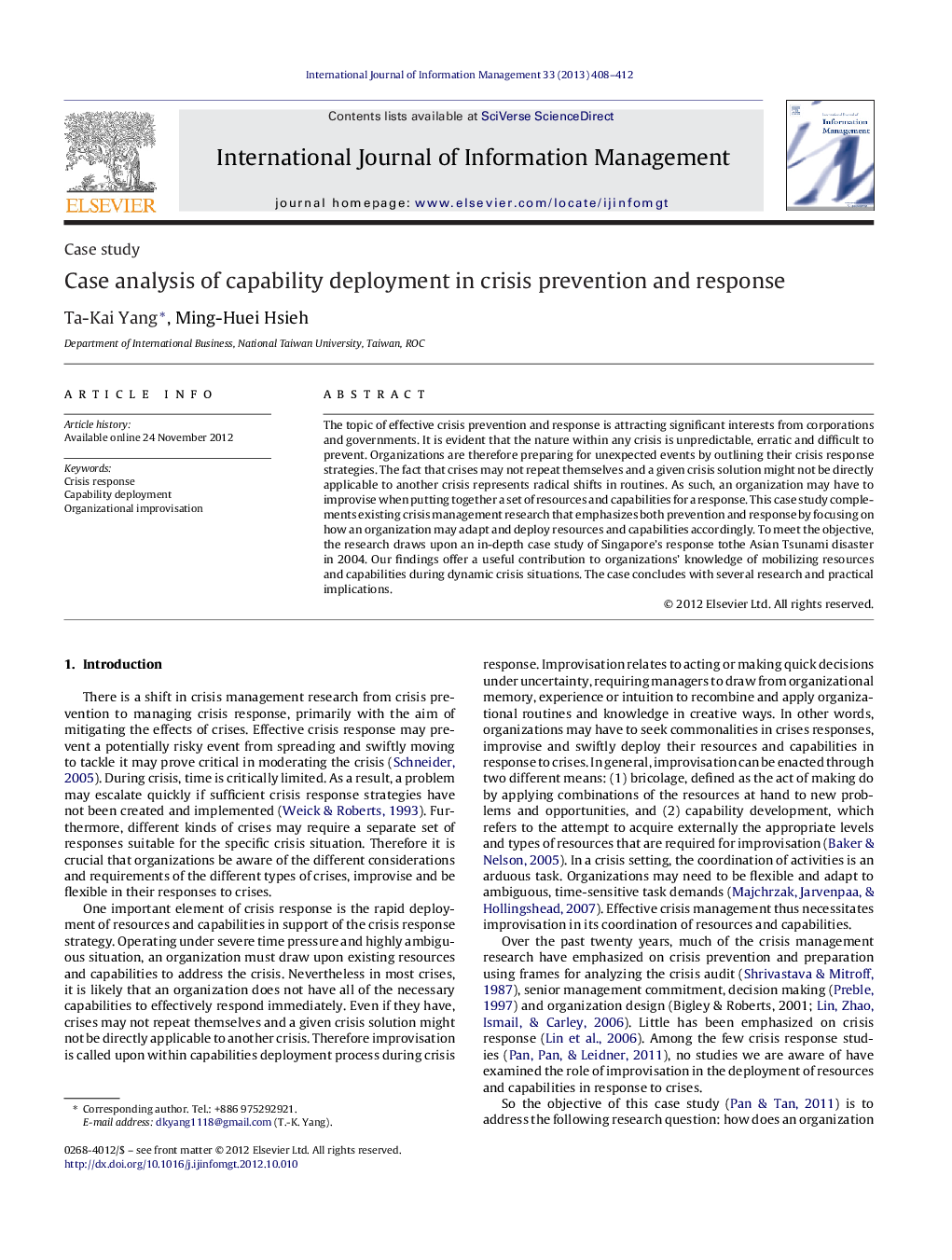| Article ID | Journal | Published Year | Pages | File Type |
|---|---|---|---|---|
| 1025760 | International Journal of Information Management | 2013 | 5 Pages |
The topic of effective crisis prevention and response is attracting significant interests from corporations and governments. It is evident that the nature within any crisis is unpredictable, erratic and difficult to prevent. Organizations are therefore preparing for unexpected events by outlining their crisis response strategies. The fact that crises may not repeat themselves and a given crisis solution might not be directly applicable to another crisis represents radical shifts in routines. As such, an organization may have to improvise when putting together a set of resources and capabilities for a response. This case study complements existing crisis management research that emphasizes both prevention and response by focusing on how an organization may adapt and deploy resources and capabilities accordingly. To meet the objective, the research draws upon an in-depth case study of Singapore's response tothe Asian Tsunami disaster in 2004. Our findings offer a useful contribution to organizations’ knowledge of mobilizing resources and capabilities during dynamic crisis situations. The case concludes with several research and practical implications.
